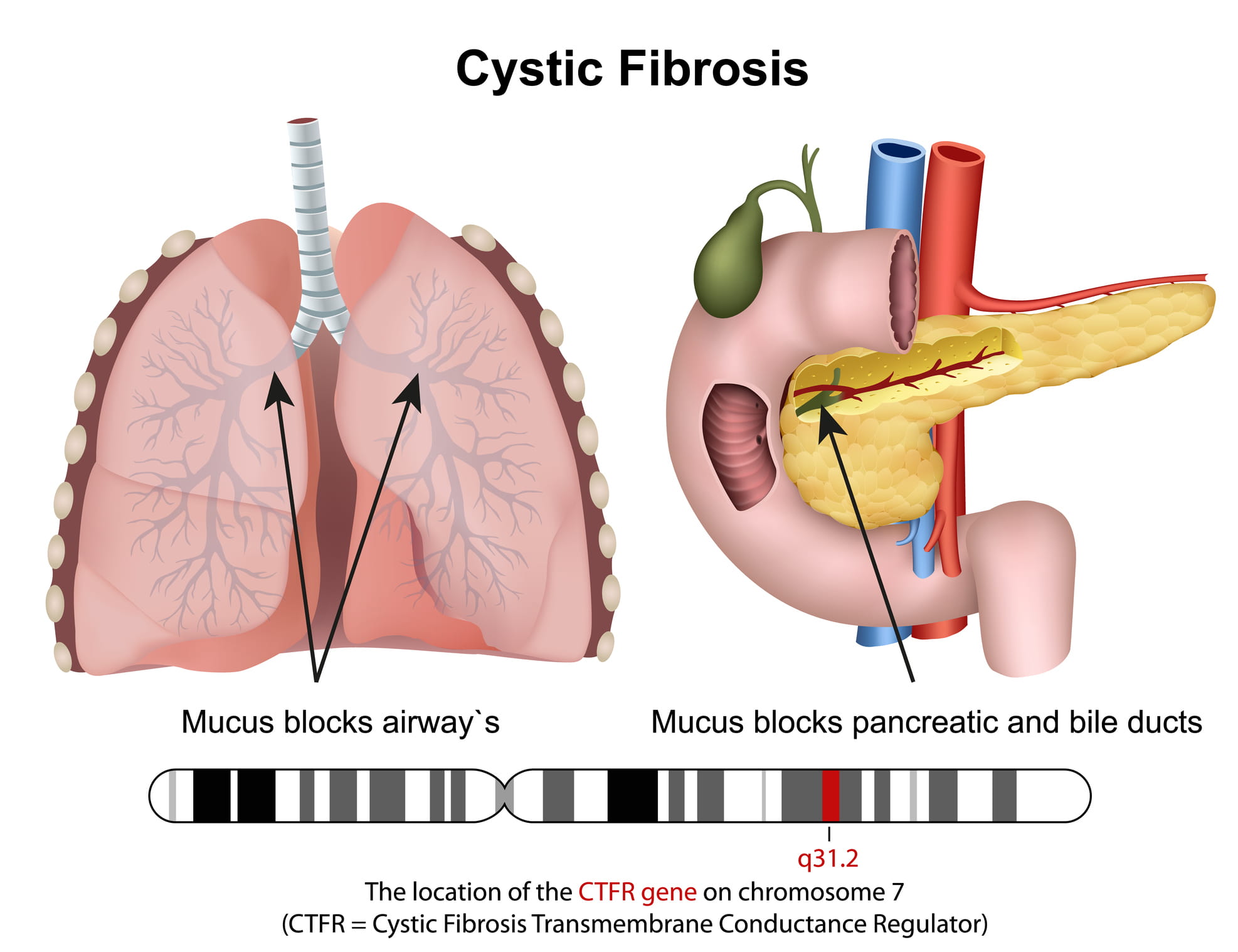Can Talk Therapy Via Telemedicine Be the Answer for Cystic Fibrosis Patients Suffering from Mental Health Problems?

- Drexel Researchers Selected for Federal AI Research Pilot Program
- Renowned Geneticist Vicki L. Chandler, PhD, to Address Drexel College of Medicine Class of 2024 During Commencement
- New Project Examines Racism and Resilience Among Black Autistic Children and Caregivers
- Fashion Icon Mary McFadden 'The High Priestess of High Fashion' Exhibition Opens at Drexel

Cystic Fibrosis
Drexel University researchers are exploring how Acceptance and Commitment Therapy (ACT), a type of talk therapy, delivered via telemedicine, may alleviate the anxiety and depression common among cystic fibrosis (CF) patients. The multisite nationwide trial led by C. Virginia O’Hayer, PhD, a clinical associate professor of Psychiatry in the Drexel University College of Medicine, is supported by a three-year, $960,000 grant from the Boomer Esiason Foundation.
CF is an inherited, life-threatening disease characterized by frequent lung infections, severe constipation, persistent cough producing thick mucus, and other symptoms. The disease damages the lungs, digestive system and other organs, and patients have a life expectancy of about 44 years -- a number that is increasing thanks to the discovery of new treatments.
CF patients -- there are more than 30,000 in the United States -- are two to three times more likely than those without CF to develop depression and/or anxiety. Currently very limited research exists on how to improve the physical and mental health of depressed individuals in this population, who must adhere to a strict daily regimen of a combination of therapies, which may include medicine, physical therapy and fitness. The pressures of these treatments and uncertainty associated with the disease can contribute to mental disorders.
“ACT is a novel, interactive, and experiential treatment, different from other talk therapies,” said O’Hayer. “Now that we know, from our pilot study, that ACT can help people with CF better cope with mental health concerns, we need to figure out if ACT works better than ‘just talking with someone.’ By expanding our treatment to a more diverse patient population and including a treatment as usual control condition, we aim to address why ACT improves lung function – and to further help CF patients optimize their mental and physical health.”
This work follows a three-year pilot study led by O’Hayer which showed that ACT, adapted by O’Hayer for CF patients, reduced anxiety and depression and showed a trend toward improving lung function. In that study, all 30 participants underwent six 50-minute manualized ACT with CF sessions, with the choice of receiving these sessions in person or via telehealth webcam. Twenty-four participants chose the webcam, which also eliminates any exposure risk associated with coming into contact with other CF patients at the clinic. Webcam-delivered ACT with CF was found to be just as effective as the same treatment delivered in-person. In the new randomized controlled trial, participants will be randomly assigned to either ACT with CF or Supportive Psychotherapy, a treatment as usual control. All six 50-minute sessions will be delivered via telehealth webcam, to measure levels of anxiety, depression, how often they take their medicine and other health markers.
"We're so excited to partner with Dr. O'Hayer and Drexel on ACT for cystic fibrosis,” said Gunnar Esiason, director of patient outreach for the Boomer Esiason Foundation, who also lives with cystic fibrosis. “Mental health has been overlooked for far too long in cystic fibrosis, and though it is now widely understood that mental health issues are prevalent in the CF community, the Boomer Esiason Foundation is proud to be supporting an intervention that will directly support patients and families experiencing such issues. We are also thrilled to award this grant knowing that Dr. O'Hayer included people with cystic fibrosis in the trial design. It is clear to us that the Drexel team values patient experience and expertise, which are core values that we hold at the Boomer Esiason Foundation. We look forward to the trial getting underway, and want to extend a message of thanks to the people living with cystic fibrosis who volunteer for the study!"
Telemedicine has grown substantially in recent years. From 2015-2018, the number of physicians reporting that they have telemedicine skills has doubled and grows by about 20 percent annually, according to a Doximity report released earlier this year. A 2018 research letter in JAMA found that telemedicine visits rose by 261 percent from 2015-2017.
In addition to the main hub at Drexel, the multisite trial will also take place at Duke University Medical Center, Augusta University, and the University of Pittsburgh, among other sites.
In This Article
Contact
Drexel News is produced by
University Marketing and Communications.